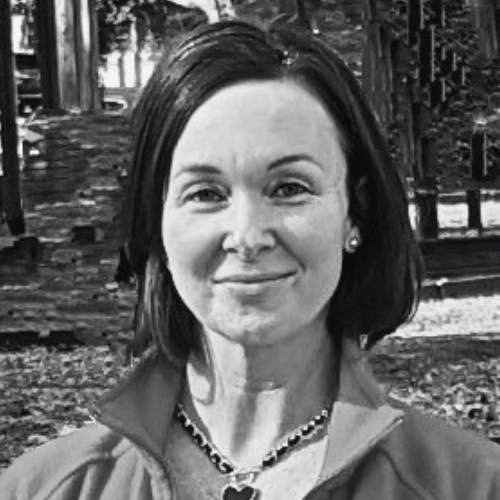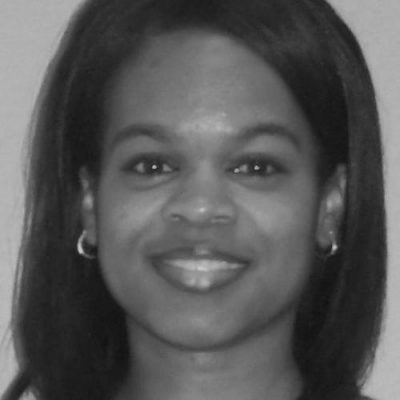Pre-Algebra
Placement Information
Placement Process
One critical factor for restful learning is the proper placement of students. If you are unsure which level is the best fit for your student, reach out to the instructor you are considering. Once registered, anticipate contact regarding placement evaluations from instructors by May 15th and throughout the summer. Students must be registered to enter the placement process. Early placement exams may allow time for tutoring or additional review based on the outcomes. See more about placement evaluations in our Student-Parent Handbook.
Math Placement Process
For registered students, please anticipate contact regarding placement evaluations from instructors by May 15th and throughout the summer. Students must be registered in a math course to receive a placement assessment. Math classes have a detailed and specific placement process.
Read more about the math placement process here.
Watch the math placement process video with our department chair, Dr. Fransell Riley, here.
See the Math Scope and Sequence here.
Required Materials:
Books and supplies are not included in the purchase of the course.
For Class with Fransell Riley
- Digital Homework: ALEKS
- ALEKS delivers textbook practice problems to the students in a manner that promotes mastery and retention. Students work all problems on paper and turn them in for the instructor to review. Students are required to correct their work using ALEKS’ step-by-step solution; thus, they learn from their errors before trying another similar problem.
- Purchased via the instructor ($40) by 7/31. Info. will be sent via email in June.
- Paper Textbook (Optional): Reveal Math Course 3 Vol 1 and Vol 2
- The instructor does not teach from the book but uses it for example problems and structure. Thus, many students do not make use of the textbook. Therefore, its purchase is optional. Notwithstanding, this book has a superb organization of content with less arithmetic review, and a superb presentation of linear functions.
-
Mathematics for the Nonmathematician Excerpts (used print or digital is ok)
- This text will be used to learn some of the related history and philosophy of the concepts covered.
- Digital tablet. Choose from: Wacom Intuos, Huion, XP-Pen, or other.
- Three-ring notebook with five dividers or 5 subject spiral
- Binder Pencil Pouch with multiple sharpened pencils, erasers
- **Scientific Calculator Examples: **TI, Sharp, other
- Notebook Paper and Graph paper
- **Free web accounts: **ziteboard.com, desmos.calculator,
- Ziteboard is used often as a virtual classroom chalkboard, the others are used sparingly

Christina Royals
[email protected]Christina Royals began her journey as an educator in 2005 and holds a B.S in Middle Grades Education with certifications in ELA, Math, and Gifted as well as a Minor in Music. She has spent much of her career as a math instructor in a variety of instructional settings in Georgia. She is joining the Scholé Academy instructional team as a mathematics instructor and is excited to share her joy and passion for the content with young, eager learners. Christina feels it is a blessing and a “calling” to be allowed the opportunity to assist children with their academic progress. She enjoys showing even the most apprehensive students that math doesn’t have to be scary, and they CAN find success! When she isn’t engaged in math teaching, you can find her playing with her sprightly toddler, enjoying walks at parks, or reading in her hammock. She also loves crossword puzzles and math logic puzzles such as KenKen, Sudoku, and Suguru! (Expect to see those pop up during class sessions to challenge the students!) Christina was born, raised and continues to live in sunny Savannah, Georgia with her son and husband. Además, Christina habla español porque su marido es de la República Dominicana!

Fransell Riley
[email protected]Dr. Fransell Riley, Chair of Math Department spent most of her career working as a quantitative analyst. She earned her PhD in mathematics from the University of Texas at Arlington with every intention of remaining in corporate America. Though she enjoyed her work, she ultimately responded to an internal call to pursue a passion for educating students, including her own children. Fransell has taught math and science to students of all ages from elementary school to college. While teaching, she noticed that her natural teaching style aligned almost perfectly with the concepts of classical education. She takes a holistic approach to teaching and involves her students in discussions aimed at developing a deeper understanding of the concept being taught with the desire that student learning extend beyond memorizing algorithms. Fransell has a passion for mathematics and seeks to share that passion with the next generation. Beyond math, Fransell enjoys spending time with her husband and 2 sons. They are all athletes and nature lovers; they enjoy participating in sports, hiking, exploring nature, and traveling. When they aren’t enjoying God’s creation, you can find them indoors reading or watching reruns from the Star Trek series.
.png?cache=false)
Marv Retzer
[email protected]Marv Retzer, Chemistry Instructor, began teaching in 1977. He holds a Bachelor of Science degree in Elementary Education from Grace College, a Master of Arts degree in Christian School Administration from Grace Theological Seminary and completed EdD (ABD) studies at Ball State University in Educational Leadership with a Curriculum cognate. Mr. Retzer began his undergrad studies in medical research before switching to Elementary Education and, with his extensive Math and Science background, has taught MS-HS Math and Science classes for over 20+ years in addition to work in administration. Mr. Retzer’s personal scientific “love” is for Chemistry and he was privileged to receive a summer Eisenhower Fellowship in the 1980’s to study Microscale Chemistry at MIT in Boston. “All things were made through Him, and without Him was not anything made that was made.” (John 1:3 ESV) Mr. Retzer’s goal is for all students to see the majesty and power of God in creation through the study of Science.

Silouan Oberholtzer
[email protected]Silouan Oberholtzer holds a Bachelors of Science degree in Mathematics & Computer Science from Temple University, Philadelphia. During his studies he tutored college-level mathematics both in-person and online in the subjects of Calculus I, Calculus II and Algebra. After graduating in 2022, Mr. Oberholtzer worked for two years as a Service Technician for commercial HVAC/R equipment.
Having learned on-the-job as a mechanic under senior technicians as well as formally in university, Mr. Oberholtzer’s pedagogy seeks to emphasize the practical and intuitive aspects of math education.
Mr. Oberholtzer currently attends Holy Resurrection of Christ Serbian Orthodox Church in Lebanon, PA. He hopes, God willing, to pursue further education in Orthodox Theology and Church history.
Quarter 1
- Laws of Exponents (include problems that require 4+ steps)
- Scientific Notation
- Operation with Scientific Notation (without converting to standard form)
- Terminating and Repeating Decimals
- Compare and Order Rational Numbers
- Roots
- Solve 3+ Step Equations and Advanced Equations (with fractions)
- The order in which topics are presented may vary according to instructor and course section.
Quarter 2
- Identify and Compare Functions
- Properties of Functions (linear and nonlinear)
- Dimensional Analysis (Create Conversions Factors)
- Solve Systems of Equations (using substitution and graphing)
- Determine the number of solutions in a system of equations
- Factor algebraic expressions
- The order in which topics are presented may vary according to instructor and course section.
Quarter 3
- Slope of a Line
- Direct Variation
- Slope Intercept Form
- Scatterplots
- Lines of Fit
- Two-way Tables
- Interpret qualitative graphs
- The order in which topics are presented may vary according to instructor and course section.
Quarter 4
- Similar Triangles (using proportions NOT SAS, SSS, ASA, etc)
- Angle Relationships and Parallel Lines
- Pythagorean Theorem and Converse
- Distance and Midpoint Formula
- TransformationsCongruence and Silimarity
- Volume of Cylinders, Cones, and Spheres
- The order in which topics are presented may vary according to instructor and course section.
![]() Computer: You will
need a stable, reliable computer, running with a processor with a speed of 1 GHz or better
on one of the following operating systems: Mac OS X with Mac OS 10.7 or later; Windows 8,
7, Vista (with SP1 or later), or XP (with SP3 or later). We do not recommend using an
iPad or other tablet for joining classes. An inexpensive laptop or netbook would be much
better solutions, as they enable you to plug an Ethernet cable directly into your computer.
Please note that Chromebooks are allowed but not preferred, as they do not support certain
features of the Zoom video conference software such as breakout sessions and annotation,
which may be used by our teachers for class activities.
Computer: You will
need a stable, reliable computer, running with a processor with a speed of 1 GHz or better
on one of the following operating systems: Mac OS X with Mac OS 10.7 or later; Windows 8,
7, Vista (with SP1 or later), or XP (with SP3 or later). We do not recommend using an
iPad or other tablet for joining classes. An inexpensive laptop or netbook would be much
better solutions, as they enable you to plug an Ethernet cable directly into your computer.
Please note that Chromebooks are allowed but not preferred, as they do not support certain
features of the Zoom video conference software such as breakout sessions and annotation,
which may be used by our teachers for class activities.
![]() High-Speed Internet Connection:
You will also need access to high-speed Internet, preferably accessible via Ethernet
cable right into your computer. Using Wi-Fi may work, but will not guarantee you the optimal
use of your bandwidth. The faster your Internet, the better. We recommend using a connection
with a download/upload speed of 5/1 Mbps or better. You can test your Internet connection here.
High-Speed Internet Connection:
You will also need access to high-speed Internet, preferably accessible via Ethernet
cable right into your computer. Using Wi-Fi may work, but will not guarantee you the optimal
use of your bandwidth. The faster your Internet, the better. We recommend using a connection
with a download/upload speed of 5/1 Mbps or better. You can test your Internet connection here.
![]() Webcam: You may
use an external webcam or one that is built in to the computer. Webcam Recommendations:
Good (PC only) | Best (Mac and PC)
Webcam: You may
use an external webcam or one that is built in to the computer. Webcam Recommendations:
Good (PC only) | Best (Mac and PC)
![]() Headset: We recommend
using a headset rather than a built-in microphone and speakers. Using a headset reduces the
level of background noise heard by the entire class. Headset Recommendations: USB | 3.5mm
Headset: We recommend
using a headset rather than a built-in microphone and speakers. Using a headset reduces the
level of background noise heard by the entire class. Headset Recommendations: USB | 3.5mm
![]() Zoom: We use a web
conferencing software called Zoom for our classes, which enables students and teachers to
gather from around the globe face to face in real time. Zoom is free to download and easy
to use.
Zoom: We use a web
conferencing software called Zoom for our classes, which enables students and teachers to
gather from around the globe face to face in real time. Zoom is free to download and easy
to use.  To
download Zoom:
To
download Zoom:
- Visit zoom.us/download.
- Click to download the first option listed, Zoom Client for Meetings.
- Open and run the installer on your computer.
- In August, students will be provided with instructions and a link for joining their particular class.
![]() Scanner: In this
class, students frequently submit homework assignments by scanning pages from their workbooks.
Students and/or their parents should have easy access to a scanner and the ability to use it.
Scanner: In this
class, students frequently submit homework assignments by scanning pages from their workbooks.
Students and/or their parents should have easy access to a scanner and the ability to use it.
Step 1
Step 2
Step 3
Step 4
Explore our courses!
First, read the available course descriptions, noting prerequisites, target grades, and course objectives. If you think your student is prepared for the course, go ahead and register. After registration, a placement assessment may be provided to students, depending on the course and the student’s previous enrollment with Scholé Academy. Registration is finalized when the student’s placement assessment has been returned by the course instructor with placement confirmation.
All Courses | By Grade
Read the Student-Parent Handbook.
Please take careful note of our teaching philosophy, our technology requirements, our school policies, the parent agreement, and the distinctions between our grade levels.
Double-check the course section dates and times.
Make sure they don't conflict with other activities in your schedule or other courses you are purchasing. Our system will not catch double-bookings!
You're ready to add course selections to your cart!
Our Assistant to the Principal will be in touch with you after your enrollment to help you with next steps, including any placement evaluations that may be required for your course selections.
This registration will be finalized when the student's placement assessment has been returned by the course instructor with placement confirmation.
